Related Research Articles
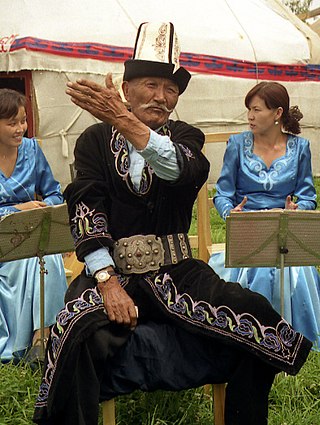
Oral tradition, or oral lore, is a form of human communication in which knowledge, art, ideas and culture are received, preserved, and transmitted orally from one generation to another. The transmission is through speech or song and may include folktales, ballads, chants, prose or poetry. It is a medium of communication for a society to transmit oral history, oral literature, oral law and other knowledge across generations without a writing system, or in parallel to a writing system.
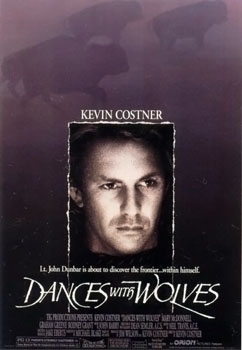
Dances with Wolves is a 1990 American epic Western film starring, directed, and produced by Kevin Costner in his feature directorial debut. It is a film adaptation of the 1988 novel Dances with Wolves, by Michael Blake, that tells the story of Union Army Lieutenant John J. Dunbar (Costner), who travels to the American frontier to find a military post, and who meets a group of Lakota.

Sitting Bull was a Hunkpapa Lakota leader who led his people during years of resistance against United States government policies. Sitting Bull was killed by Indian agency police on the Standing Rock Indian Reservation during an attempt to arrest him at a time when authorities feared that he would join the Ghost Dance movement.

Gerald Robert Vizenor is an American writer and scholar, and an enrolled member of the Minnesota Chippewa Tribe, White Earth Reservation. Vizenor also taught for many years at the University of California, Berkeley, where he was Director of Native American Studies. With more than 30 books published, Vizenor is Professor Emeritus at the University of California, Berkeley, and Professor of American Studies at the University of New Mexico.

Lakota, also referred to as Lakhota, Teton or Teton Sioux, is a Siouan language spoken by the Lakota people of the Sioux tribes. Lakota is mutually intelligible with the two dialects of the Dakota language, especially Western Dakota, and is one of the three major varieties of the Sioux language.

Broken Arrow is a 1950 American revisionist Western film directed by Delmer Daves and starring James Stewart, Jeff Chandler, and Debra Paget. The film is based on historical figures, but fictionalizes their story in dramatized form. It was nominated for three Academy Awards, and won a Golden Globe Award for Best Film Promoting International Understanding. Film historians have said that the film was one of the first major Westerns since the Second World War to portray Native Americans sympathetically.
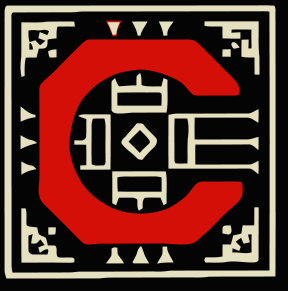
The United States Indian Industrial School in Carlisle, Pennsylvania, generally known as Carlisle Indian Industrial School, was the flagship Indian boarding school in the United States from its founding in 1879 through 1918. It was based in the historic Carlisle Barracks, which was transferred to the Department of Interior from the War Department for the purpose of establishing the school. After the United States entered World War I, however, the school was closed, and the property on which it was located was transferred back for use by the U.S. Department of Defense. The property is now part of the U.S. Army War College.

American Horse was an Oglala Lakota chief, statesman, educator and historian. American Horse is notable in American history as a U.S. Army Indian Scout and a progressive Oglala Lakota leader who promoted friendly associations with whites and education for his people. American Horse opposed Crazy Horse during the Great Sioux War of 1876–1877 and the Ghost Dance Movement of 1890, and was a Lakota delegate to Washington. American Horse was one of the first Wild Westers with Buffalo Bill's Wild West and a supporter of the Carlisle Indian Industrial School. His record as a councilor of his people and his policy in the new situation that confronted them was consistent, and he was known for his eloquence.

Frank Fools Crow was an Oglala Lakota civic and religious leader. 'Grandfather', or 'Grandpa Frank' as he was often called, was a nephew of Black Elk who worked to preserve Lakota traditions, including the Sun Dance and yuwipi ceremonies. He supported Lakota sovereignty and treaty rights, and was a leader of the traditional faction during the armed standoff at Wounded Knee in 1973. With writer Thomas E. Mails, he produced two books about his life and work, Fools Crow in 1979, and Fools Crow: Wisdom and Power in 1990.
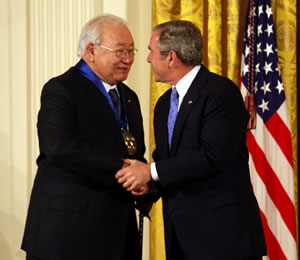
Navarre Scotte Momaday was an American novelist, short story writer, essayist, and poet. His novel House Made of Dawn was awarded the Pulitzer Prize for Fiction in 1969, and is considered the first major work of the Native American Renaissance.
Delphine Red Shirt is a Native American author and educator, who is an enrolled member of the Oglala Sioux Tribe of the Pine Ridge Reservation.

Tasunka Kokipapi, was an Oglala Lakota leader known for his participation in Red Cloud's War, as a negotiator for the Sioux Nation after the Wounded Knee Massacre, and for serving on delegations to Washington, D.C.. During and after his lifetime American sources and written records mistranslated his name as Young Man Afraid of His Horses or uncommonly as His-Horses-Are-Afraid, but a proper translation is They-Fear-Even-His-Horses or His Horse Is Feared, meaning that the bearer of the name was so feared in battle that even the sight of his horse would inspire fear.

The Oglala are one of the seven subtribes of the Lakota people who, along with the Dakota, make up the Očhéthi Šakówiŋ. A majority of the Oglala live on the Pine Ridge Indian Reservation in South Dakota, the eighth-largest Native American reservation in the United States.
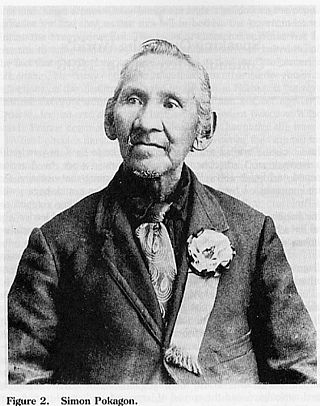
Simon Pokagon was a member of the Pokagon Band of Potawatomi Indians, an author, and a Native American advocate. He was born near Bertrand in southwest Michigan Territory and died on January 28, 1899, in Hartford, Michigan. Dubbed the "Red Man's Longfellow" by literary fans, Pokagon was often called the "Hereditary and Last Chief" of the tribe by the press. He was a son of his tribe's patriarch, Leopold Pokagon.

Storyteller is a collection of works, including photographs, poetry, and short stories by Leslie Marmon Silko. It is her second published book, following Ceremony. The work is a combination of stories and poetry inspired by traditional Laguna Pueblo storytelling. Silko's writings in Storyteller are influenced by her upbringing in Laguna, New Mexico, where she was surrounded by traditional Laguna Pueblo values but was also educated in a Euro-American system. Her education began with kindergarten at a Bureau of Indian Affairs school called the Laguna Day School "where the speaking of the Laguna language was punished."

The portrayal of Native Americans in television and films concerns indigenous roles in cinema, particularly their depiction in Hollywood productions. Especially in the Western genre, Native American stock characters can reflect contemporary and historical perceptions of Native Americans and the Wild West.

Flying Hawk, also known as Moses Flying Hawk, was an Oglala Lakota warrior, historian, educator and philosopher. Flying Hawk's life chronicles the history of the Oglala Lakota people through the 19th and early 20th centuries, as he fought to deflect the worst effects of white rule; educate his people and preserve sacred Oglala Lakota land and heritage.

Red Shirt was an Oglala Lakota chief, warrior and statesman. Red Shirt supported Crazy Horse during the Great Sioux War of 1876-1877 and the Ghost Dance Movement of 1890, and was a Lakota delegate to Washington in 1880. Red Shirt surrendered with Crazy Horse in 1877. After the surrender he moved to an area that is now known as Red Shirt, SD. Red Shirt was one of the first Wild Westers with Buffalo Bill's Wild West and a supporter of the Carlisle Native Industrial School. Red Shirt became an international celebrity Wild Westing with Buffalo Bill's Wild West and his 1887 appearance in England captured the attention of Europeans and presented a progressive image of Native Americans.
Native American feminism or Native feminism is, at its root, understanding how gender plays an important role in indigenous communities both historically and in modern-day. As well, Native American feminism deconstructs the racial and broader stereotypes of indigenous peoples, gender, sexuality, while also focusing on decolonization and breaking down the patriarchy and pro-capitalist ideology. As a branch of the broader Indigenous feminism, it similarly prioritizes decolonization, indigenous sovereignty, and the empowerment of indigenous women and girls in the context of Native American and First Nations cultural values and priorities, rather than white, mainstream ones. A central and urgent issue for Native feminists is the Missing and murdered Indigenous women crisis.
References
- 1 2 Einhorn, Lois J. (2000). The Native American Oral Tradition: Voices of the Spirit and Soul. Westport, Conn.: Praeger. p. 57.
- ↑ Kent Nerburn (1999). The Wisdom of the Native Americans. New York: MJF Books. p. 56.
- 1 2 Armstrong, Virginia Irving (1972). I Have Spoken: American History Through the Voices of the Indians. New York: Pocket Books. p. 151.
- ↑ Elder, Dana C. (1994). Essential Strategies: Integrating Reading and Writing. Macmillan. pp. 316–319.
- ↑ Einhorn, Lois J. (2000). The Native American Oral Tradition: Voices of the Spirit and Soul. Westport, Conn.: Praeger. p. 66.
- ↑ Native American Reader: Stories, Speeches, and Poems. Juneau, Alaska: Denali Press. 1990. p. 73.
- ↑ Karen D. Harvey (1995). American Indian Voices. Brookfield, Conn.: Millbrook Press. p. 66.